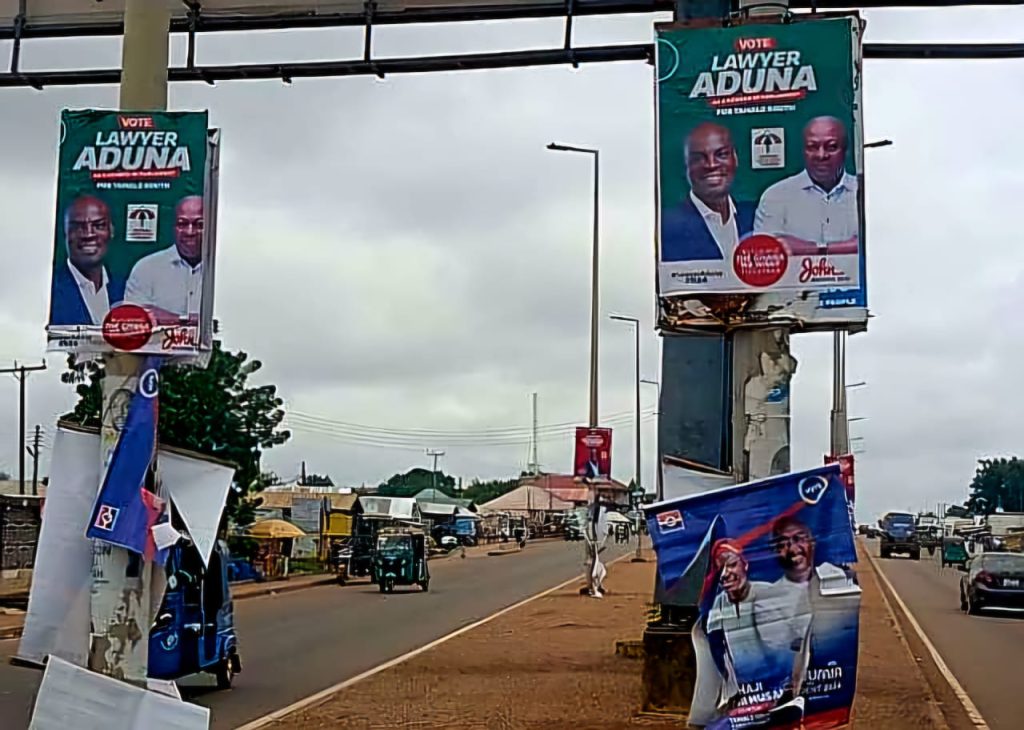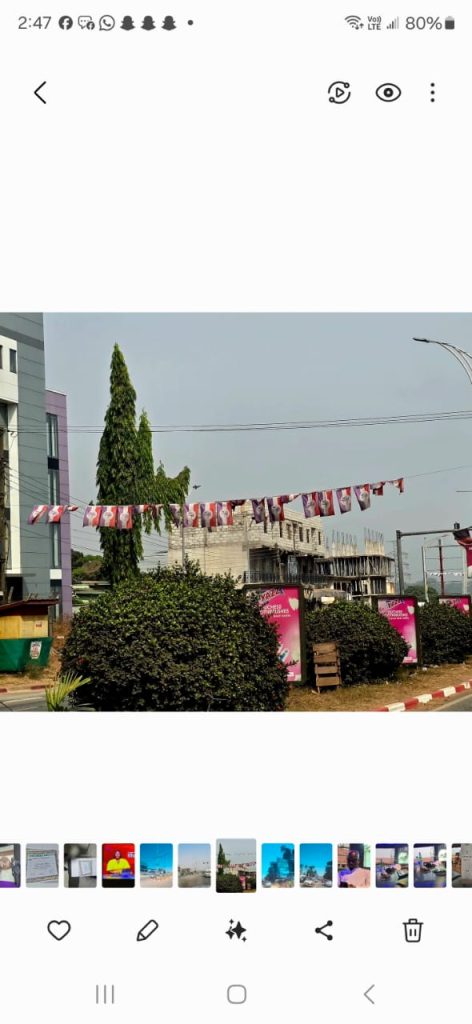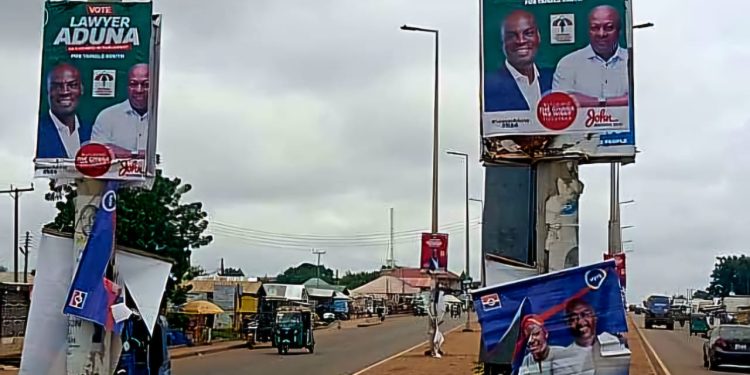Visual pollution poses a significant challenge to urban aesthetics and public health. Unlike water, air, noise, or chemical pollution, visual pollution directly impacts the visual quality of spaces, often degrading environments and affecting the psychological well-being of individuals.
According to Sharaf and Brush (1977), visual pollution leads to cognitive overload and psychological distress.

In Ghana, the proliferation of political paraphernalia, such as outdated posters and billboards, has become a persistent feature of the landscape, contributing to the clutter and chaos in urban areas.
Political advertisements are some of the most pervasive offenders. Sadly, lack of awareness and enforcement of existing regulations has allowed these materials to dominate cities, towns, and villages long after their intended purpose has expired.

A Gap in Regulation
Ghana’s only formal guideline on advertising is outlined in the Ghana Standards manual titled SERVICES – ADVERTISING – SPECIFICATION FOR OUTDOOR SIGNS.
This manual aims to ensure the safe installation and sustainability of advertisements while providing guidelines for their control.
Certain types of advertisements, like election posters, appear to be exempt, resulting in widespread non-compliance.
The manual specifies that: Posters for non-political events should only be displayed 14 days before the event and removed within three days afterward.
Election-related posters are allowed only from the date of election proclamation and must be removed 14 days after the election concludes.
Despite these clear guidelines, many political parties fail to adhere to the rules. A case in point is the billboard of Hon. Yaw Osafo Marfo, erected during the 2007 NPP presidential primaries, which remains visible near Boakye Tromo Senior High School in the Ahafo Region of Ghana.
Similarly, posters from past campaigns, including those of the late Professor John Evans Atta Mills, still line the streets of cities of the country. Over 90 percent of the billboards that advertised both President Mahama and Dr. Bawumia and their parliamentary candidates are still visible on our streets.
Several religious billboards bearing inscriptions such as ‘Cross Over 2020, 2021, and 2023’ are still positioned along the roadways.
Almost all of the roundabouts in Kumasi have “funeral billboards” that have been erected for several years, perhaps in anticipation of the one-year or ten-year anniversaries.
This neglect not only mars the beauty of urban areas but also undermines the commitment of city authorities to rid our streets from outdated billboards, flags and banners that cause visual pollution.
Moreover, the widespread presence of theses outdated materials sends a message of apathy and disregard for urban cleanliness, affecting public morale and civic pride.
São Paulo, one of the largest and most dynamic cities in the world, took a bold step in 2007 by enacting the “Clean City Law” (Lei Cidade Limpa), which banned all outdoor advertising, including billboards, posters, and electronic screens.
This decision was driven by concerns over visual pollution. Before the law, São Paulo’s streets were saturated with massive billboards, neon signs, and aggressive commercial messaging, contributing to an overwhelming and chaotic urban environment.
The ban resulted in an immediate transformation of the cityscape, restoring clear sightlines to architecture, trees, and public spaces that were previously obscured by advertisements.
Much as we cannot immediately adopt the Sao Paolo strategy it is imperative that political parties and advertisers be educated about the guidelines for outdoor advertising to minimize the impact of visual pollution in our urban environment as we await the passage of the Advertising Bill by parliament.
City authorities, political parties, and citizens must work together to address the issue of visual pollution. A cleaner, more organized urban landscape benefits everyone, fostering civic pride and enhancing the overall quality of life.
By adhering to the established guidelines and implementing these recommendations, Ghana can rid its cities of outdated political paraphernalia and reclaim its visual appeal and aesthetics.
Let’s work together to rid the city of visual pollution once and for all.
Source: Adinkrah/Broadcaster, PhD candidate

































































